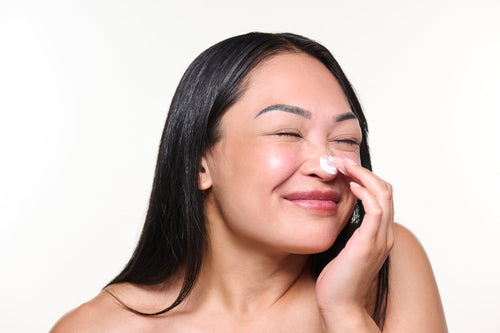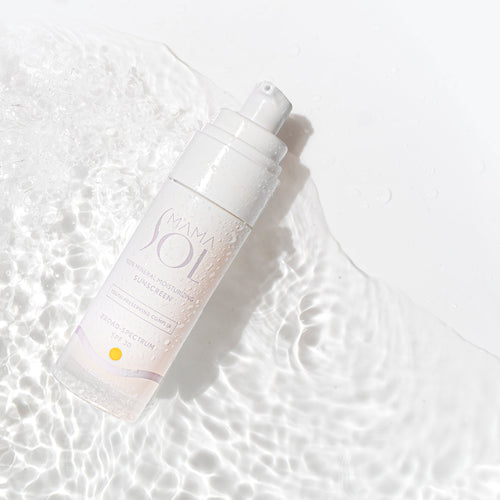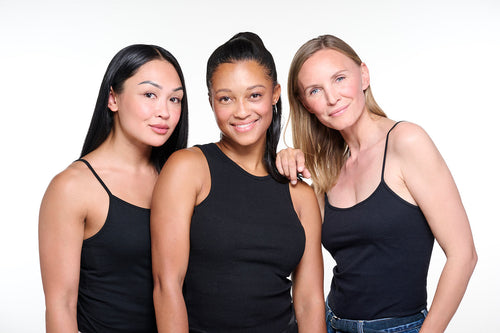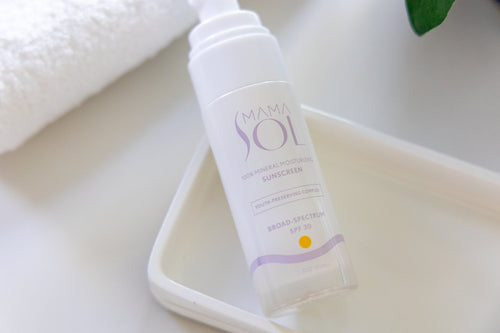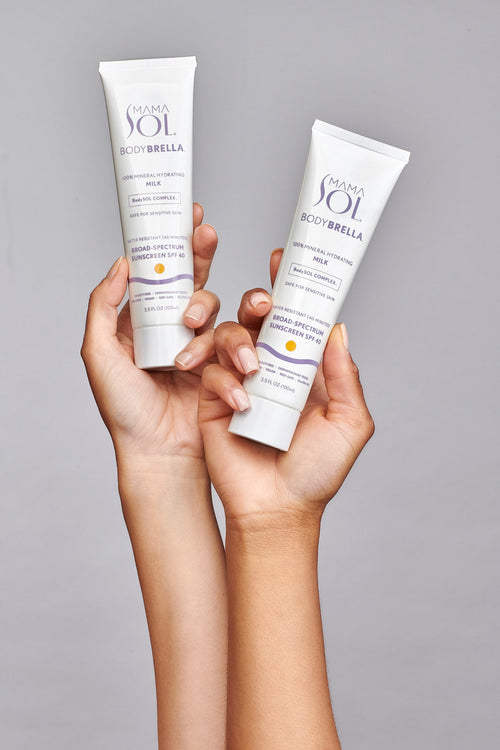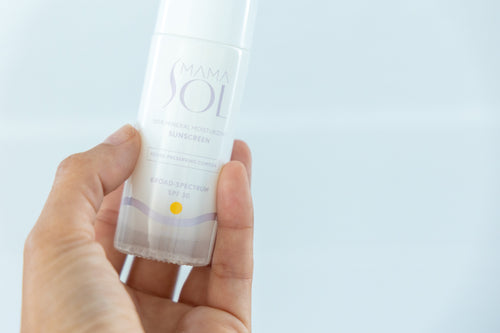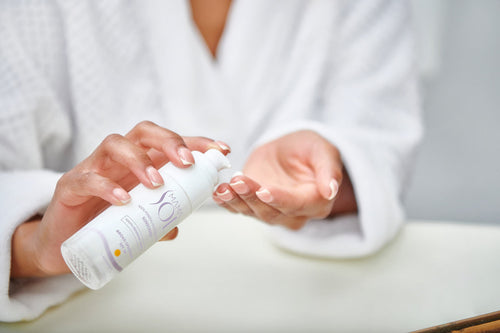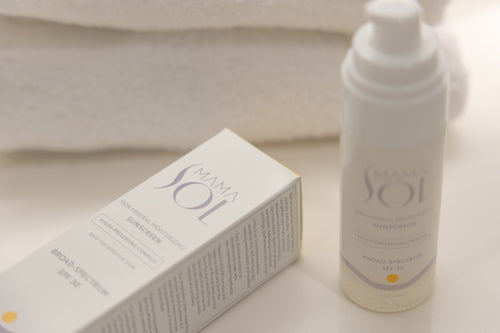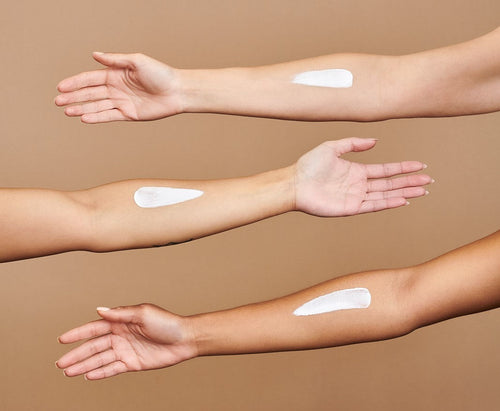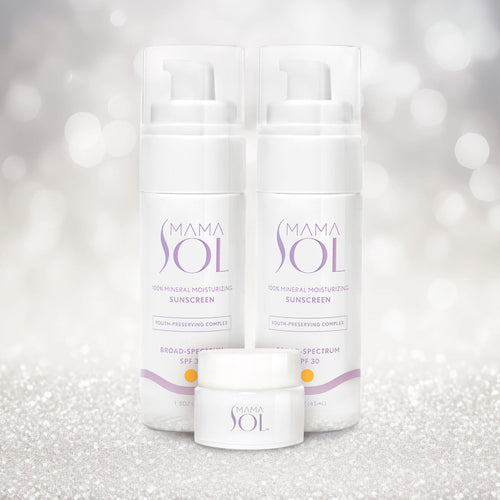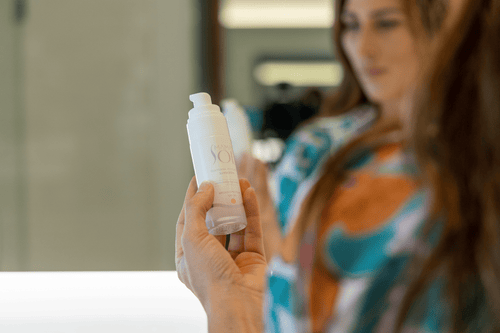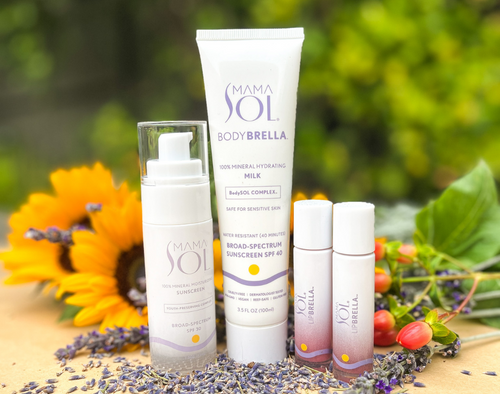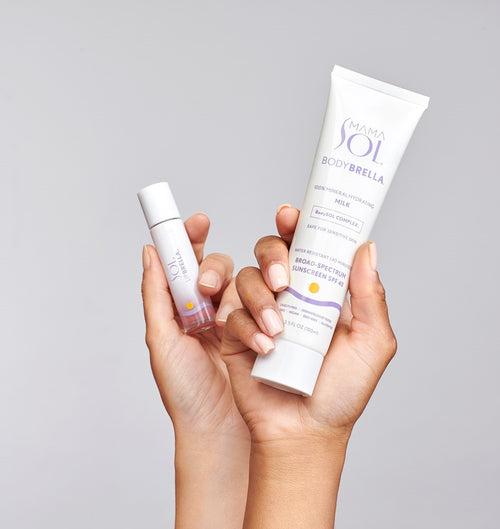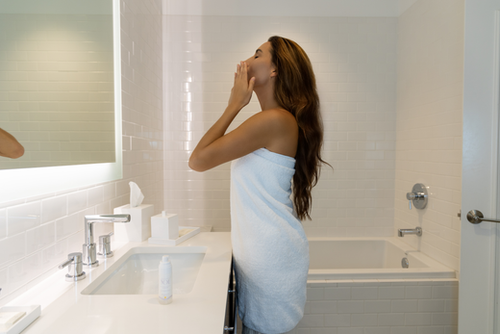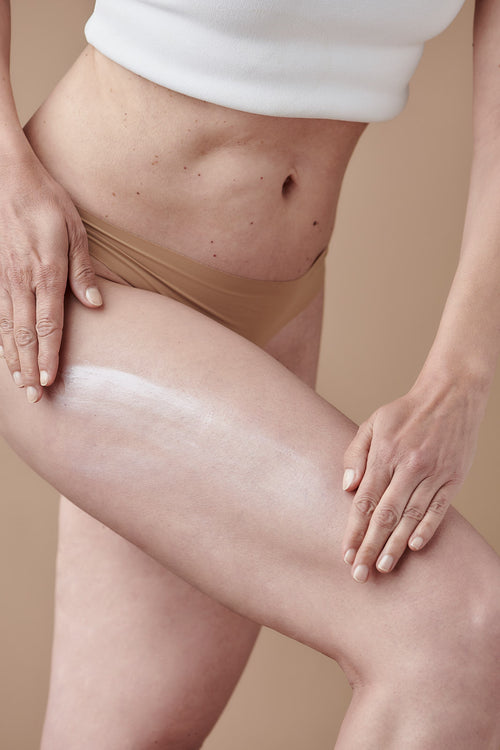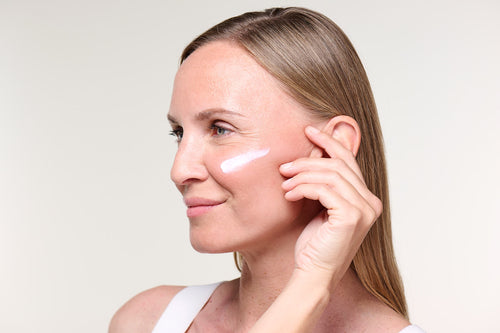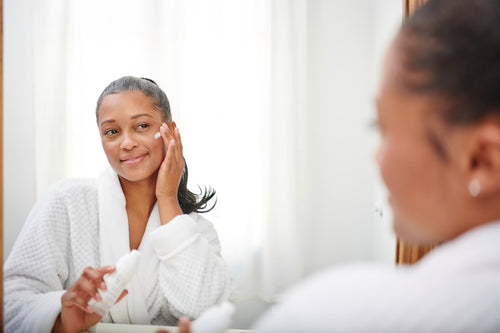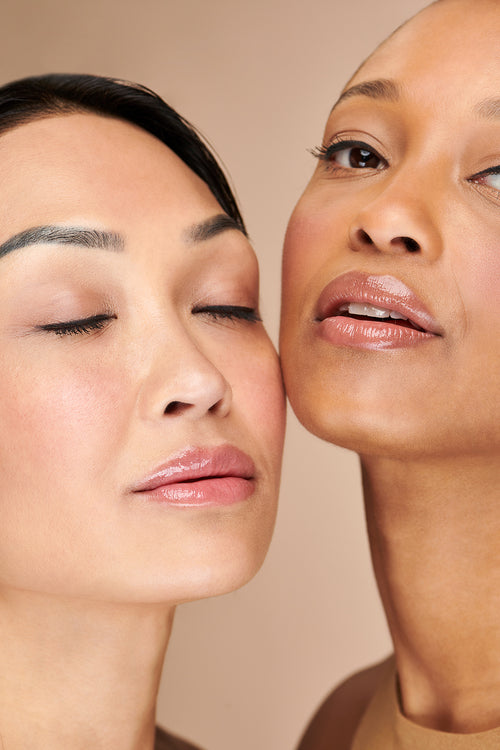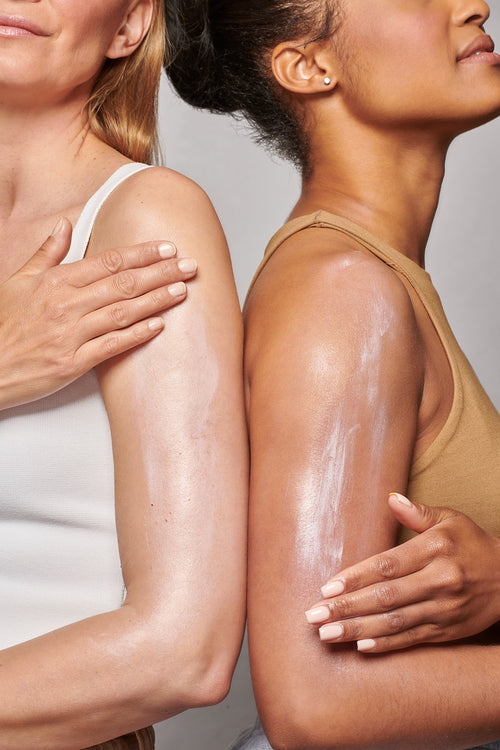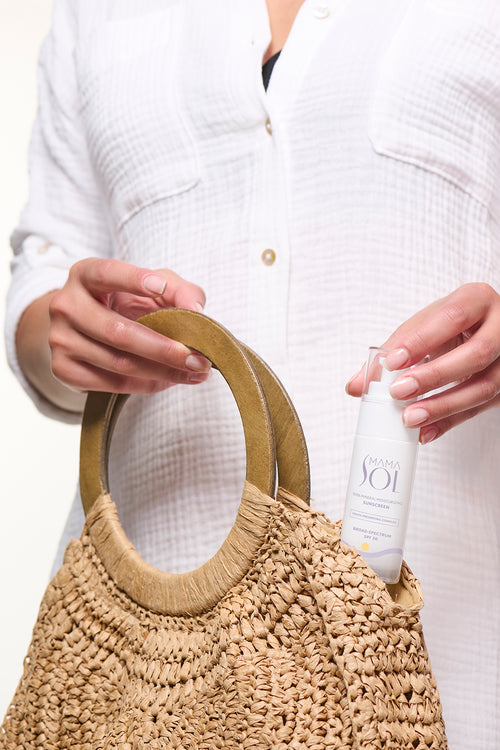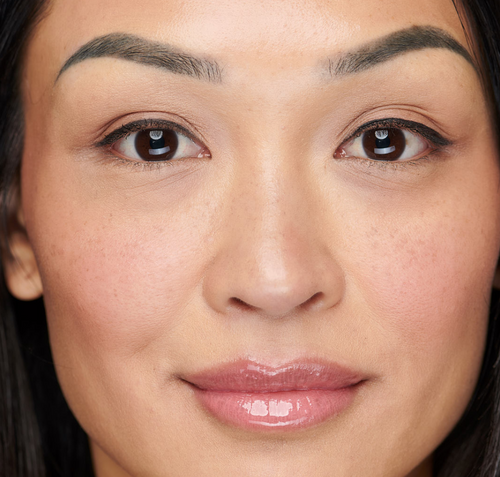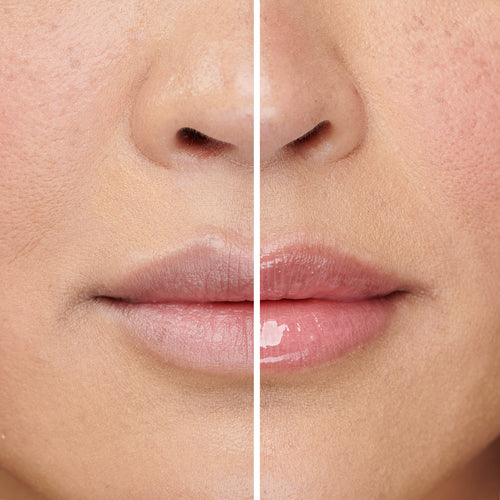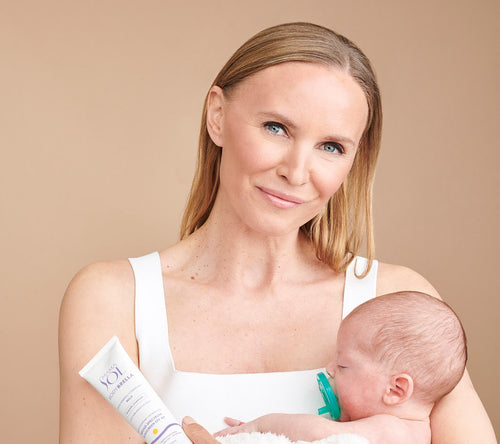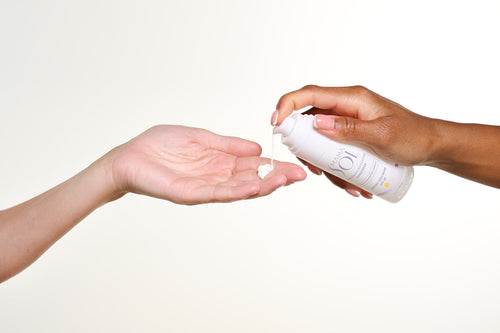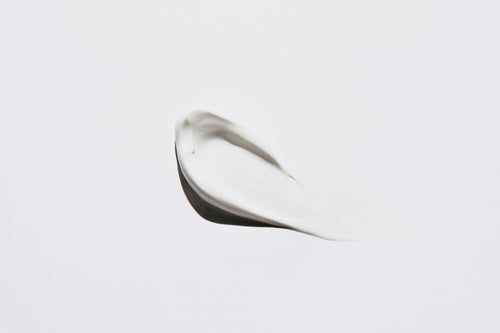 As Breast Cancer Awareness Month comes to a close, our hope is that the knowledge and awareness gained during this time continues to inspire action throughout the year. Early detection, self-advocacy, and holistic health practices are crucial for all women. To help you take proactive steps in your health journey, we’re sharing key insights from Amanda Grilli—an oncology Physical Therapist, Certified Lymphedema Therapist, and Breast Cancer Coach. In this post, we’ll cover the importance of early detection, how lymphatic health plays a role in breast cancer recovery, and some lesser-known but powerful tips to support recovery. You’ll also learn about Amanda’s nonprofit, Well Beyond Breast Cancer, which funds appointments of Breast Cancer Rehabilitation, a specialized field of physical and occupational therapy, ensuring all women have access to the care they need to address cancer-related side effects and challenges.
As Breast Cancer Awareness Month comes to a close, our hope is that the knowledge and awareness gained during this time continues to inspire action throughout the year. Early detection, self-advocacy, and holistic health practices are crucial for all women. To help you take proactive steps in your health journey, we’re sharing key insights from Amanda Grilli—an oncology Physical Therapist, Certified Lymphedema Therapist, and Breast Cancer Coach. In this post, we’ll cover the importance of early detection, how lymphatic health plays a role in breast cancer recovery, and some lesser-known but powerful tips to support recovery. You’ll also learn about Amanda’s nonprofit, Well Beyond Breast Cancer, which funds appointments of Breast Cancer Rehabilitation, a specialized field of physical and occupational therapy, ensuring all women have access to the care they need to address cancer-related side effects and challenges.
Early Detection & Self-Advocacy: Be Your Best Health Advocate
The first step to fighting breast cancer is early detection. Regular self-breast exams and mammograms (starting around age 20, depending on your risk factors) are essential, but just as important is advocating for yourself when something doesn’t feel right. For women with dense breast tissue—a condition affecting approximately 40% of women—it can be more challenging to detect cancer on a standard mammogram, as dense tissue appears white, similar to tumors. In these cases, additional screening methods, such as ultrasounds or MRIs, are recommended to help identify any abnormalities that might otherwise be missed. If you have dense breasts, talk to your doctor about whether extra screening could benefit you.
"Everyone, especially busy moms, need to trust their instincts when it comes to their health," says Amanda Grilli. "If you feel something out of the ordinary—whether it’s a lump, swelling, or even persistent pain—it’s important to consult a doctor right away. Don’t wait until your next scheduled appointment. Your health is worth that extra step."
Make a habit of performing a breast self-exam at least every month, a few days after your period ends. If you’re unsure about how to do them properly, ask your doctor to demonstrate or check out trusted resources like the National Breast Cancer Foundation or Know Your Lemons for guidance. Don’t hesitate to ask for diagnostic tests, like ultrasounds or MRIs, if you feel it’s necessary, even if you’ve had a recent checkup.
The Role of Non-Toxic Products and Organic Foods in Prevention and Treatment
When it comes to cancer prevention and supporting the body during treatment, the choices you make in terms of products and nutrition are critical. Many conventional products contain harmful chemicals that can disrupt the body’s natural balance, and these effects are even more significant for those at risk of or undergoing cancer treatment.
Amanda Grilli stresses the importance of reducing toxin exposure, especially for individuals who are actively undergoing cancer treatment or are in recovery. “Choosing non-toxic products for your skin and home, along with focusing on organic, whole foods in your diet, can help reduce the body’s toxic load and support overall wellness,” Amanda explains.
This includes:
-
Skincare and Sunscreen: Many commercial sunscreens contain chemical filters that can be absorbed into the bloodstream, which may pose risks, especially during pregnancy, nursing, or cancer treatment. Switching to 100% mineral-based sunscreens, like Mama Sol, provides a safe alternative. Mama Sol sunscreen sits on the surface of the skin and is not absorbed, offering excellent protection without exposing your body to potentially harmful chemicals. Plus, it’s made with ingredients that are safe for both moms and their families.
-
Organic and Whole Foods: A diet rich in organic fruits, vegetables, and whole foods is essential for supporting the immune system and reducing inflammation, both of which are important in cancer prevention and recovery. “Processed foods and those laden with pesticides can increase the body’s toxic load, making it harder for the body to heal and fight off disease,” Amanda advises. Focus on nutrient-dense foods like leafy greens, berries, and healthy fats (like avocados and nuts) to support your overall health.
-
Household and Beauty Products: Many conventional beauty products and household cleaners contain hormone-disrupting chemicals, which can negatively impact breast health. Opt for non-toxic, eco-friendly alternatives that are free from parabens, phthalates, and other harmful substances.
By making these mindful choices, you reduce your body’s exposure to harmful chemicals, which can support both prevention efforts and the healing process. Remember, it’s not just about what you put in your body but also what you put on it and around it.
Lymphatic Health: Why It Matters for Breast Cancer Recovery
Lymphatic health is often overlooked in discussions about breast cancer, yet it plays a critical role in recovery. The lymphatic system is responsible for maintaining the body’s fluid balance and removing toxins and waste from the body. Any blockages or issues with this system, such as damage to the system as a result of chemotherapy, radiation, lymph node removal, and surgery, can result in chronic swelling, inflammation, and other complications.
"Lymphatic health isn’t just for cancer patients," Amanda explains. "It’s something all individuals should be mindful of, as it impacts your overall immune function. Simple practices like dry brushing, staying hydrated, and incorporating deep diaphragmatic breathing and gentle movement into your day—especially yoga or swimming—can support lymphatic flow."
For those undergoing or recovering from breast cancer treatment, lymphedema (a chronic swelling of the arms, legs, or any other part of the body due to lymphatic system damage or lymph node removal) is a concern. Amanda, as a Certified Lymphedema Therapist, is dedicated to empowering her patients with knowledge and strategies to reduce their risk of developing lymphedema or successfully managing the chronic condition with Complete Decongestive Therapy.
Practical Recovery & Coping Tips: Small Changes That Make a Big Impact
Cancer treatment and recovery come with a range of physical and emotional challenges, but there are simple, lesser-known tips that can make the process smoother:
- Breast Cancer Rehabilitation: Breast Cancer Rehabilitation is a specialized field of physical and occupational therapy that helps breast cancer patients and survivors to overcome cancer-related side effects, such as pain, limited arm mobility, chest tightness, and neuropathy. Amanda shares that “with rehabilitation, individuals can reclaim their physical, emotional, and social well-being during and after breast cancer treatments, ultimately enhancing their quality of life and daily function.” Well Beyond Breast Cancer, a 501(c)3 nonprofit organization founded by Amanda, provides no-cost appointments of Breast Cancer Rehabilitation for breast cancer survivors experiencing financial hardship, ensuring that everyone has access to the care they need during, after, and beyond breast cancer treatment.
- Deep Breathing & Mindfulness: Deep breathing exercises can not only reduce stress but also improve oxygen flow throughout the body, supporting both healing and lymphatic function. Amanda often encourages patients to integrate deep breathing techniques into their daily routine as a way to stay grounded, support their lymphatic health, and manage anxiety during treatment.
- Hydration & Nutrition: Staying well-hydrated is key to helping your body flush out toxins, especially during chemotherapy or radiation. Focusing on nutrient-dense, anti-inflammatory foods like leafy greens, berries, and fatty fish can also support your body’s healing process.
- Scar Massage: Post-surgery scar tissue can cause stiffness and discomfort. Gentle scar massage, with the guidance of a therapist like Amanda, can reduce tightness and pain, and promote flexibility. This is often an overlooked aspect of recovery but can make a significant difference in your comfort levels.
- Gentle Exercise: While it may be tempting to rest entirely, gentle movement such as walking or stretching can support recovery. It helps with circulation, reduces cancer-related fatigue, improves many cancer-related side effects, and boosts mood. Always consult your healthcare provider or with a physical/occupational therapist specializing in Breast Cancer Rehabilitation before starting any exercise routine during or after treatment.
Well Beyond Breast Cancer
Amanda's work extends beyond individual care—through her nonprofit, Well Beyond Breast Cancer, she is dedicated to improving the quality of life of the breast cancer community. Amanda's mission is to ensure that individuals everywhere have access to essential cancer care, helping them to minimize cancer-related side effects and reclaim their independence, function, and well-being.
“Well Beyond Breast Cancer is here to fill a gap in healthcare, ensuring that everyone, regardless of race, age, educational background, and income, has access to the specialized care they need to improve their quality of life during, after, and beyond breast cancer. Recovery is about more than surviving; it’s about living well in every aspect of life." Amanda explains.
Consider donating to Well Beyond Breast Cancer to bring this much needed support to women in need.
Resources for Breast Cancer Awareness & Support
If you or a loved one is navigating breast cancer, there are numerous resources available for education, support, and treatment options:
Incorporating self-care into your busy schedule as a mom can be tough, but small actions like regular checkups, mindful movement, and supporting your lymphatic health can have a long-lasting impact on your overall well-being.
Let’s continue the conversation around breast cancer awareness, not just in October but year-round. Take time for yourself and encourage the women in your life to prioritize their health too!







